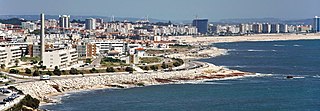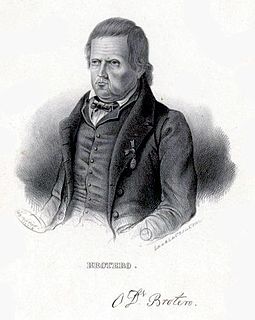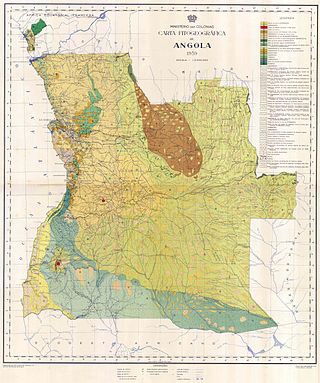Related Research Articles

Coimbra is a city and a municipality in Portugal. The population of the municipality at the 2011 census was 143,397, in an area of 319.40 square kilometres (123.3 sq mi). The fourth-largest urban area in Portugal after Lisbon, Porto, and Braga, it is the largest city of the district of Coimbra and the Centro Region. About 460,000 people live in the Região de Coimbra, comprising 19 municipalities and extending into an area of 4,336 square kilometres (1,674 sq mi).

Sophia de Mello Breyner Andresen was a Portuguese poet and writer. Her remains have been entombed in the National Pantheon since 2014.

Figueira da Foz, also known as Figueira for short, is a city and a municipality in the Coimbra District, in Portugal. Practically at the midpoint of the Iberian Peninsula's Atlantic coast, it is located at the mouth of the Mondego River, 40 km (25 mi) west of Coimbra and sheltered by hills, sharing about the same latitude with Philadelphia, Baku and Beijing. The population of the municipality in 2011 was 62,125, in an area of 379.05 km2 (146.35 sq mi). The city of Figueira da Foz proper has a population of 46,600. It is the second largest city in the district of Coimbra.

Domenico Agostino Vandelli was an Italian naturalist, who did most of his scientific work in Portugal.

Félix de Avelar Brotero was a Portuguese botanist and professor. He fled to France in 1788 to escape persecution by the Portuguese Inquisition, and there published his Compendio de Botanica in order to earn his living. It immediately established his reputation as a botanist, and upon his return to Portugal in 1790 he was given the chair of botany and agriculture at the University of Coimbra. His two best known works, Flora lusitanica, 1804, and Phytographia Lusitaniae selectior, 1816–1827, were the first lengthy descriptions of native Portuguese plants. As director of the botanical gardens at Coimbra and Ajuda (Lisbon), he reorganized and enlarged them.

Luís da Silva Mouzinho de Albuquerque was a Portuguese military officer, engineer, poet, scientist and politician, who distinguished himself during the Liberal Wars and in the conflicts that marked Portugal's history in the first half of the 19th century. He served as the Minister of the Kingdom during the liberal regency of Pedro of Braganza. This was the most prominent post inside the government at that time, which made him the Prime Minister of Portugal in all but name. He was also several times minister and deputy minister during the Constitutional Monarchical period. Among other offices, he served as Chief of the National Mint, captain-general and governor of Madeira, and inspector-general of public works. He was the grandfather of Joaquim Augusto Mouzinho de Albuquerque, a military officer and colonial administrator.

Tourism in Portugal serves millions of international and domestic tourists. Tourists visit to see cities, historic landmarks, enjoy beaches, or religious sites. As of 2019, Portugal had 27 million visitors. The most popular destinations were Lisbon, Porto, the Algarve, the Portuguese Riviera, Madeira, Sintra, Óbidos and Fátima. The most popular with internationals were Lisbon, the Algarve and Northern Portugal. National tourists prefer Northern Portugal, followed by Central Portugal and the Algarve.
Jardim Botânico, Portuguese for botanical garden, may refer to:
Higher education in Portugal is divided into two main subsystems: university and polytechnic education. It is provided in autonomous public and private universities, university institutes, polytechnic institutes and higher education institutions of other types.
The CP Urban Services network is the commuter train network of Metropolitan Lisbon and Metropolitan Porto, Portugal. It is a Comboios de Portugal company. It connects the city centers with the suburbs.

Science and technology in Portugal is mainly conducted within a network of research and development (R&D) units belonging to public universities and state-managed autonomous research institutions. There are also non-state-run research institutions and some private R&D projects developed by companies.

The Diocese of Funchal was created originally on 12 June 1514, by bull Pro excellenti præeminentia of Pope Leo X, following the elevation of Funchal from a village to the status of city, by King Manuel I of Portugal. The new diocese was a suffragan of the Archdiocese of Lisbon.
The 1938–39 Taça de Portugal was the first season of the Taça de Portugal, the premier Portuguese football knockout competition, organized by the Portuguese Football Federation (FPF). The final was played on 26 June 1939 between Académica de Coimbra and Sport Lisboa e Benfica.

Joaquim Pereira Teixeira de Vasconcelos, better known by his pen name Teixeira de Pascoaes, was a Portuguese poet. He was nominated five times for the Nobel Prize in Literature.
Arnaldo Deodato da Fonseca Rozeira, also known as Arnaldo Rozeira or Arnaldo Roseira, was a botanist, Dean of the Faculty of Sciences of the University of Porto between April 1972 and April 1974, and director of the Botanical Garden of Porto between 1960 and 1974 and again between January and April 1982.

Johannes Gossweiler aka John Gossweiler or João Gossweiler, was state botanist to the Government of Angola from 1899 until his death. He made important collections in every district of Angola and created the first phytogeographic map of that country. His collections of African plant specimens were sent regularly to Lisbon, the British Museum, the Royal Botanic Gardens, Kew, and the University of Coimbra. Duplicates were also kept at the Herbarium of the Instituto de Investigação Agronómica in Angola. Today, many herbaria contain specimens he collected.
Francisco Caldeira CabralGCIH • GOIP was a Portuguese landscape architect. He was an active and internationally reputed landscape architect from the 1940s to the 1980s. He was a pioneer in the practice, study and teaching of Landscape Architecture, and he was a pioneer of the Portuguese environmental movement.
The 1922–23 Campeonato de Portugal was the second edition of Campeonato de Portugal. It was contested by 6 clubs, winners of regional championships, and took place from 3 to 24 June 1923.